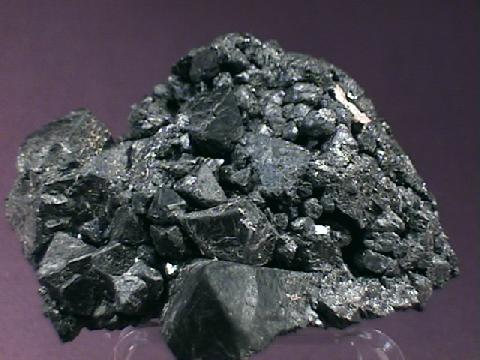
FRANKLINITE
Specimen fra-3
$ 200.00
Dims: 3.4 x 2.3 x 2.4" (8.6 x 6.1 x 5.8 cm)
Wt: 1 lb., 0.3 oz. (462.0 g)
750-foot-level, 1250-foot-stope, Sterling Hill Mine, Ogdensburg, New Jersey, U.S.A.
This hand specimen consists almost entirely of a cluster of heavily-intergrown Franklinite octhahedrons. The largest of these crystals measures 1.0" (2.5 cm) along an edge, and like many on the cluster, is badly broken and incomplete. Those that are intact, however, generally have good form, with well-defined edges and clean faces that possess a pearly, almost submetallic luster. Many of the smaller crystals are warped due to cramped space for growth, though. All have a basic black coloration and are thoroughly opaque. There is only a very small amount of a weathered white host rock present- it is likely made up of calcite.
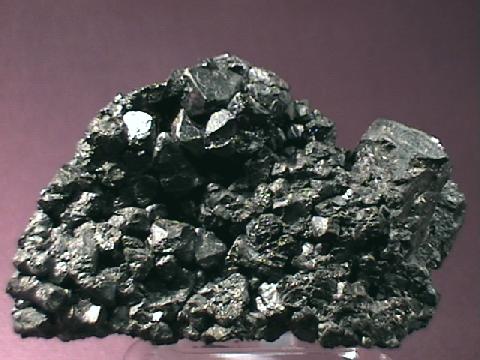
 Amethyst Galleries' Mineral Gallery MINERALS |
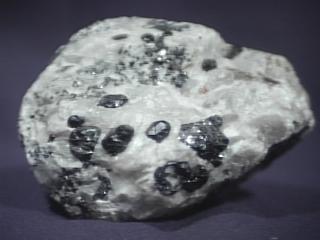
FRANKLINITE specimen fra-1
$ 55.00
$ 55.00
Dims: 4.2" x 3.9" x 2.6"(10.7 x 9.9 x 6.6 cm)
Wt: 2 lbs, 10.0 oz.(1.190 kg)
Franklin, New Jersey, U.S.A.
A classic specimen from the famous locality at Franklin, New Jersey, this large chunk contains Franklinite crystals and shards of willemite in a calcite matrix. The Franklinite crystals are rounded and often have visible but indefinite octahedral and/or dodecahedral faces, and some seem flattened and incomplete. There are hundreds of them visible in the calcite, most of which do not exceed 2 mm in diameter. However, there are about 20 that exceed 0.1"(3 mm) in diameter, and a few of these reach diameters over 0.3"(8 mm); one malformed and incomplete crystal measures 0.8"(2.0 cm). All are purely black in color, have a vitreous luster, and are opaque. The willemite has a green-brown coloration and though not as easy to see as the Franklinites, is still visible. Under either shortwave or longwave UV light, though, all the minerals are easily discernable. The willemite is the most striking, glowing a very bright green coloration, which contrasts wonderfully with the dull orange glow of the calcite matrix. The Franklinite crystals have the distinction of not glowing at all, being nonreactive to UV radiation. These are some of the largest Franklinites that I have seen, and this specimen was one of the few that we found available at the Tucson shows.
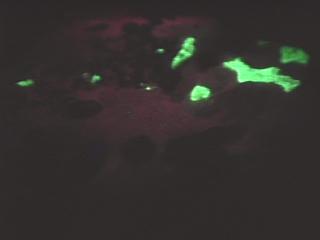

fra-1 ($ 55.00)
Franklin, New Jersey, U.S.A.
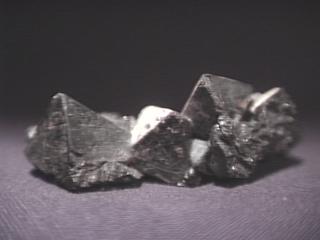
FRANKLINITE specimen fra-2
$ 25.00
$ 25.00
Dims: 2.4" x 1.4" x 0.8" (6.1 x 3.6 x 2.0 cm)
Wt: 1.46 oz. (41.4 g)
Sterling Hill Mine, Ogdensburg, New Jersey, U.S.A.
This small specimen reminds me a lot of some magnetite pieces that I have seen. It consists of 3 discernable crystals that make up part of a crust. Two of these crystals are complete, showing somewhat asymmetrical but well-formed octahedrons, and the largest has only one 4-sided pyramid, as the other has been broken off. Most of the rest of the material on the specimen consists of a crust formed from broken pieces of intergrown crystals. Needless to say, there is substantial damage to the entire piece, and even the complete crystals are not unscathed. The large 4-sided pyramid measures 0.7 x 0.7 x 0.5" (1.8 x 1.8 x 1.3 cm), and the two others are approximately half that size. All are black and opaque, and have a pearly luster.

fra-2 ($ 25.00)
Sterling Hill Mine, Ogdensburg, New Jersey, U.S.A.

$ 200.00
Dims: 3.4 x 2.3 x 2.4" (8.6 x 6.1 x 5.8 cm)
Wt: 1 lb., 0.3 oz. (462.0 g)
750-foot-level, 1250-foot-stope, Sterling Hill Mine, Ogdensburg, New Jersey, U.S.A.
This hand specimen consists almost entirely of a cluster of heavily-intergrown Franklinite octhahedrons. The largest of these crystals measures 1.0" (2.5 cm) along an edge, and like many on the cluster, is badly broken and incomplete. Those that are intact, however, generally have good form, with well-defined edges and clean faces that possess a pearly, almost submetallic luster. Many of the smaller crystals are warped due to cramped space for growth, though. All have a basic black coloration and are thoroughly opaque. There is only a very small amount of a weathered white host rock present- it is likely made up of calcite.


750-foot-level, 1250-foot-stope, Sterling Hill Mine, Ogdensburg, New Jersey, U.S.A.
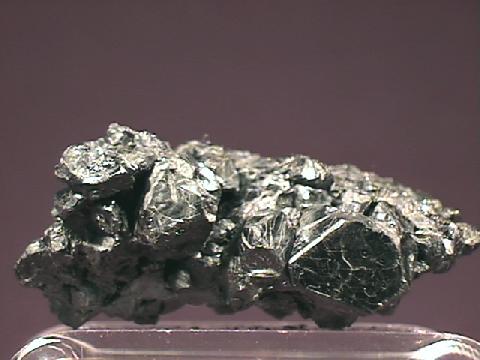
FRANKLINITE specimen fra-4
$ 25.00
$ 25.00
Dims: 2.0 x 1.2 x 0.8" (5.1 x 3.0 x 2.0 cm)
Wt: 2.20 oz. (62.4 g)
750-foot-level, 1250-foot-stope, Sterling Hill Mine, Ogdensburg, New Jersey, U.S.A.
This large thumbnail specimen consists mostly of a cluster of intergrown Franklinite crystals that extend off of an amorphous calcite base. These crystals do not exceed 0.5" (1.3 cm) in diameter, and almost all of them are damaged or incomplete- most of this is due to their intense intergrowth and the separation of this piece from its place of formation. The few crystals that are intact have good octahedral form, with well-defined edges and clean faces that possess a submetallic, pearly luster. They have the standard black coloration and are heavily intergrown with the calcite host in one area. I suppose that one could dissolve the calcite to expose more intact crystals.

fra-4 ($ 25.00)
750-foot-level, 1250-foot-stope, Sterling Hill Mine, Ogdensburg, New Jersey, U.S.A.
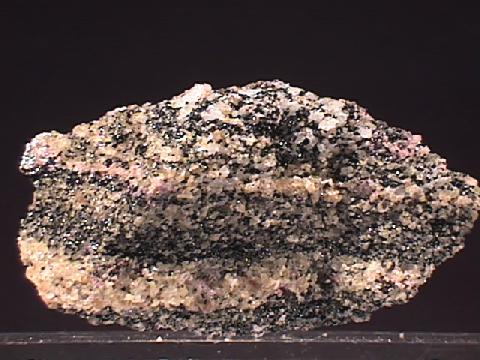
FRANKLINITE specimen fra-5
$ 30.00
$ 30.00
Dims: 3.1 x 1.9 x 1.4" (7.9 x 4.8 x 3.6 cm)
Wt: 9.80 oz. (277.8 g)
Sussex County, New Jersey, U.S.A.
This small hand specimen consists of countless tiny crystals and partial crystals of Franklinite that are pressed together with large amounts of granular willemite and some calcite. These minerals have been pressed together into an almost sedimentary deposit- there are definite layers, each of which contain high concentrations of one or another of these minerals. Layers with high concentrations of Franklinite are very dark, of course, and those layers that are high in willemite and calcite have a pale-green and milky-white colorations, respectively. Though this specimen does not show exceptional crystals of any of these minerals, it has wonderful colorations when bathed in shortwave ultraviolet light (see the second image). The calcite takes on a bright red-orange coloration, and the willemite glows an exceptional, bright green. Franklinite, being inert as far as fluorescence is concerned, maintains its black coloration.
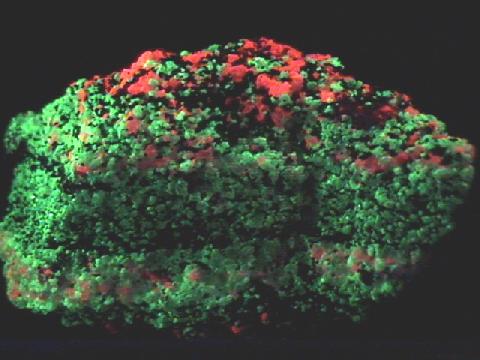

fra-5 ($ 30.00)
Sussex County, New Jersey, U.S.A.
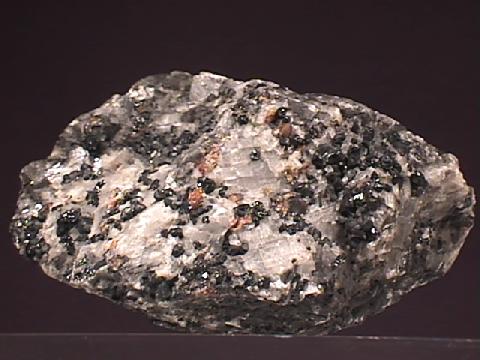
FRANKLINITE specimen fra-6
$ 45.00
$ 45.00
Dims: 3.2 x 2.4 x 1.9" (8.1 s 6.1 x 4.8 cm)
Wt: 10.1 oz. (286.3 g)
Sussex County, New Jersey, U.S.A.
This hand specimen consists of scores or even hundreds of tiny Franklinite crystals that are embedded in a calcite matrix. These Franklinites do not exceed 0.2" (5 mm) in diameter, and most are smaller than that. Most of the visible crystals are broken and incomplete, but a few areas of fresh breakage on the calcite contain many intact ones. They tend to have rather warped, cube-based forms, and a few show definable octahedral or even dodecahedral forms. They are all black and have a dull, submetallic luster. They are accompanied by many equally small, brown willemite crystals that are also embedded in the calcite. It is easiest to pinpoint these when the specimen is bathed in shortwave ultraviolet light (see the second image), as the calcite glows a moderate red, and the willemite glows bright green. Being fluorescently inert, the Franklinites do not glow.
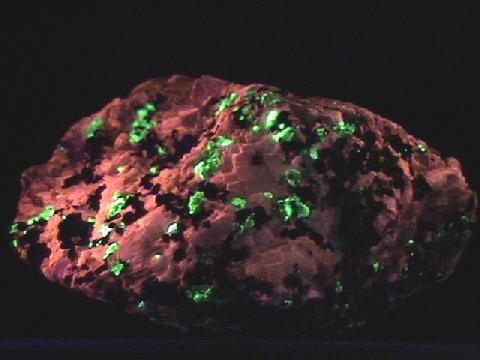

fra-6 ($ 45.00)
Sussex County, New Jersey, U.S.A.
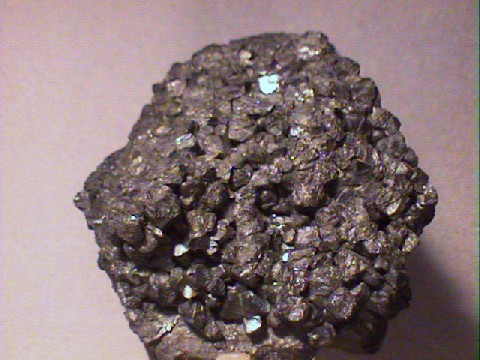
FRANKLINITE specimen fra-7
$ 60.00
$ 60.00
Dims: 3.0 x 2.9 x 1.4" (7.7 x 7.3 x 3.5 cm)
Wt: 12.1 oz. (344 g)
Sterling Hill Mine, Ogdensburg, New Jersey, U.S.A.
This cabinet specimen is made up entirely of intergrown Franklinite crystals. These crystals are in generally poor condition, as 90% of those exposed are broken and incomplete. The largest of these would exceed 1" (2.5 cm) in diameter if it were complete, though most range between 0.3 and 0.5" (8 and 13 mm). The few that are intact have excellent octahedral form, and all have the classic black color and dull, submetallic luster. There is no matrix or host rock present.
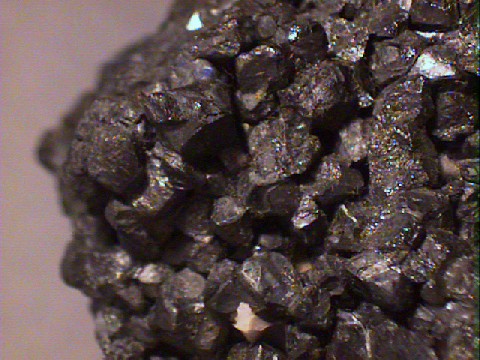

fra-7 ($ 60.00)
Sterling Hill Mine, Ogdensburg, New Jersey, U.S.A.
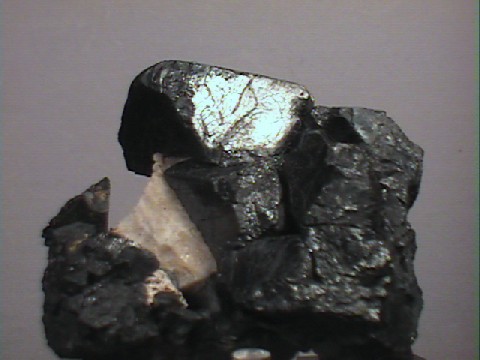
FRANKLINITE specimen fra-8
$ 70.00
$ 70.00
Dims: 2.3 x 2.0 x 0.9" (5.9 x 5.0 x 2.4 cm)
Wt: 4.8 oz. (137 g)
Sterling Hill Mine, Ogdensburg, New Jersey, U.S.A.
At least 15 intersecting Franklinites make up the bulk of this large hand specimen. All but perhaps a few tiny crystals are broken and incomplete- the largest has dimensions of 1.0 x 0.9 x 0.7" (2.5 x 2.4 x 1.8 cm). Where intact, their octahedral form is excellent, and all have the classic black color and a pearly, submetallic luster. A small amout of white calcite is present, which will glow a bright orange under shortwave UV light.
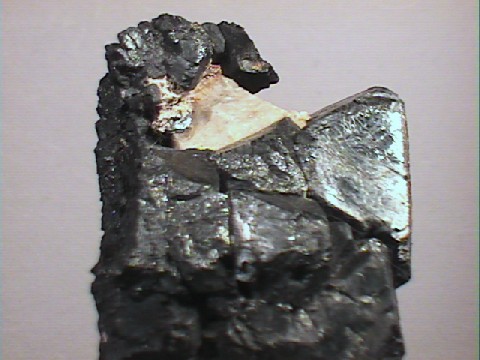

fra-8 ($ 70.00)
Sterling Hill Mine, Ogdensburg, New Jersey, U.S.A.
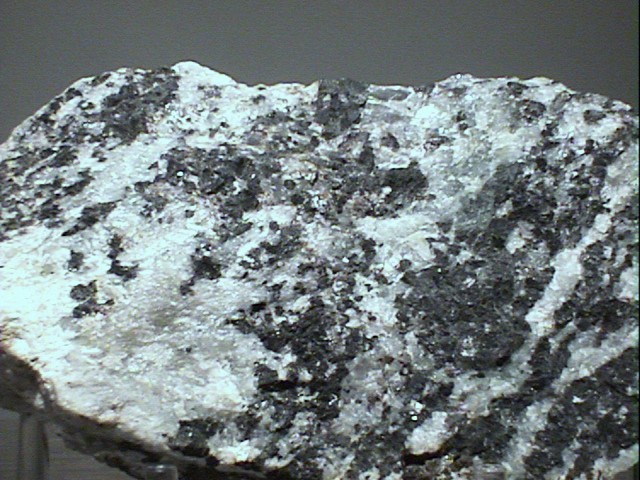
FRANKLINITE specimen fra-9
$ 30.00
$ 30.00
Dims: 6.41x3.58x1.77" (16.27x9.09x4.50cm)
Wt: 21.27oz (602g)
Franklin, New Jersey, USA
This Franklin specimen nearly half Franklinite, largely in granular veins alternating with calcite crystals. Of course, the Franklinite does not fluoresce, but the calcite does. Most of the calcite fluoresces orange under short wave UV. Some of the larger and clearer crystals glow a bright orange, and some of the calcite (at least I believe it is more calcite) does not fluoresce at all. The colors in the fluorescent image are simply wrong, but the glowing areas are correct. There are a few tiny specs of willemite that glow a bright green.
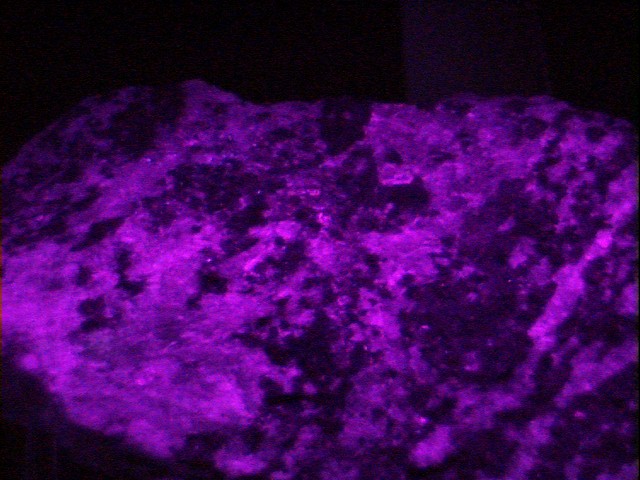

fra-9 ($ 30.00)
Franklin, New Jersey, USA